Choose To Reuse
by Rianna Koppel, Co-op Sustainability Coordinator
At the Ashland Food Co-op, we are committed to becoming Zero Waste by 2030. Along the way, we’ve learned a lot about packaging and single-use at our store. Our owners care deeply about reducing plastic waste, and we do too!
Reusable Bags
At the co-op, we have many different bag options… So what's the best choice?
We offer plastic bags, paper bags, and reusable bags. There is a 2¢ charge for new plastic bags, and a 10¢ charge for new paper bags. These charges help to subsidize the costs of our reusable bags.
We offer two reusable options, both costing only 50¢! Our plastic bag is made from reused and recycled plastic. Our fabric bag is made from cotton by the company Royal Jute. 100% of the proceeds from Royal Jute go directly to Kiva, a nonprofit that finances micro-lending programs for women across the world. Every time you purchase or use one of these bags, it makes a real impact for the planet and people.
Since we introduced reusable bags in fall of 2018, we have sold over 16,000 of them to our awesome and very sustainable members. This has worked to reduce plastic too - we have ordered 100,000 less plastic produce bags than in 2018.
What About Compostable Bags?
Sometimes people ask, why don’t you use compostable bags like other grocery stores? This is a great question, with a complex answer.
There are many commercially compostable items out there - including our very own Co-op take-out containers. If you start reading the tiny font on various packaging, you will see that there are many packaged items that are compostable in industrial or commercial facilities.
Here’s the problem: we don’t have any industrial composting facilities in the state of Oregon that will take these kinds of materials.
In fact, every composting facility in Oregon came together to issue a statement on their refusal. They called it, “A Message From Composters Serving Oregon: Why We Don’t Want Compostable Packaging and Serviceware”. The company listed out nine reasons why it’s not a good idea, including the facts that these materials do not always break down, they introduce contaminants, and they cannot sell this compost to organic farmers.
You can read more about this statement in this NCRA article from March 2019.
What about straws made from avocado pits?
So what about bio-based products made from renewable materials like bamboo, corn, or avocado pits? No matter the material, it’s still a single-use straw. There is a financial impact as well - straws made from avocado pits costs a whopping 600% more than a single-use paper straw. I suggest trying a reusable stainless steel straw instead!
There’s another hidden cost to plastics made from materials like corn… the impact on the environment.
According to the Oregon Department of Environmental Quality’s study on Popular Packaging Attributes, bio-based disposables can actually have a worse environmental impact! They concluded that biobased packaging materials have significant environmental trade-offs when compared to non-bio based counterparts. Plus, they take away from food production.
What Can I Do?
Choose to reuse first. Make sure to throw your reusable produce bags in with your tote bags, and don’t forget your coffee cup! Eat in at the Co-op on a durable plate or bowl - which will save you 15¢.
There are different ways to address our plastic problems, and each one of them can start with us making the choice to reuse. We started our 15¢ discount for bringing your own coffee cup in 2013 - since then, customers have used this discount over 113,000 times! That’s an amazing diversion from the landfill that makes us proud to be committed towards zero-waste at the Co-op.
If you would like to learn more about our sustainability initiatives, contact Rianna at sustainability@ashlandfood.coop.
More Co-op News
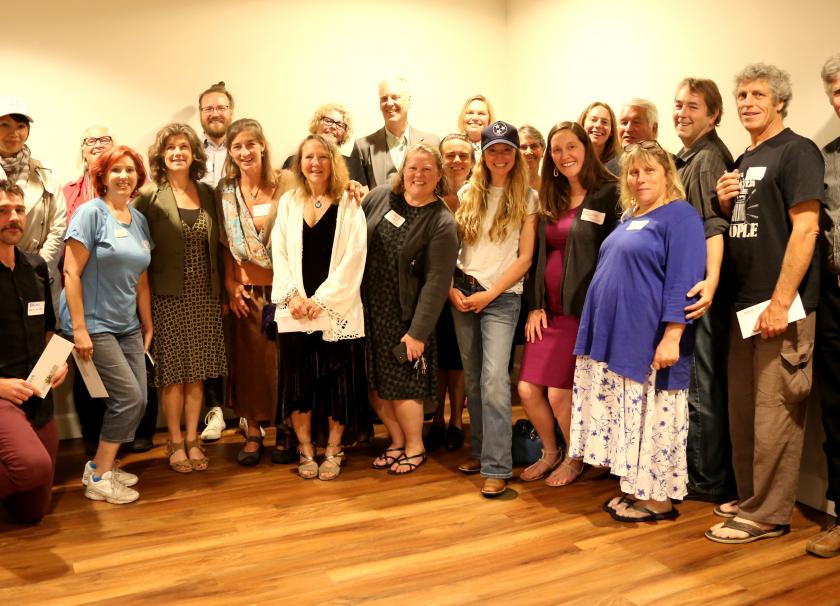
2019 Community Grant Applications
The funding cycle for the 2019 Co-op Community Grants for nonprofit organizations begins in February.

Meet Cooking Class Instructor Charlie Douglass
Many talented local chefs share their expertise in the Co-op Kitchen. Charlie Douglass is no exception. As the former Master Chocolatier at Harry and David, Charlie knows a thing or two about chocolate and candy making.
Tell us how your love of cooking and food began.

Meet Cooking Class Instructor Tiazza Rose
Tell us how your love of cooking and food began.
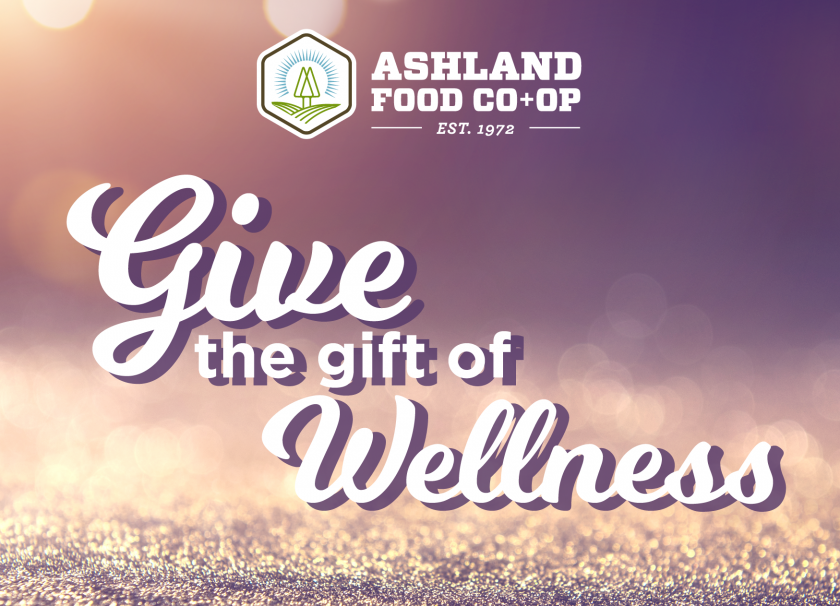
Give the Gift of Wellness
Finding the perfect gift for a friend or loved one is an art. This winter, we carefully selected these assortments for those who love some good self-care, are working in partnership with their gut health, or for those making efforts to reduce their pain. Each of these gift ideas will help you make your loved ones feel extra special and extra healthful.
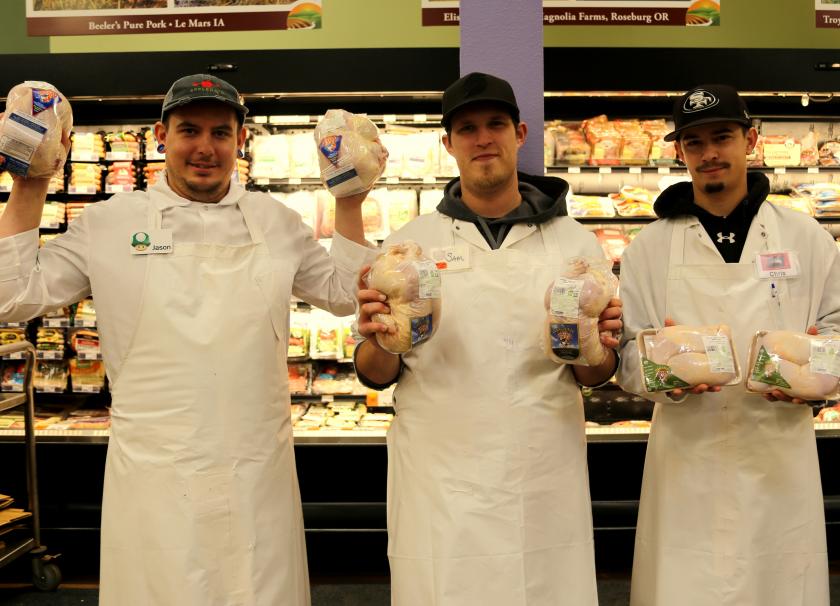
Give the Gift of Good Food
During the month of November, Co-op shoppers can nourish their own families and help fight hunger in the Rogue Valley. We’ve teamed up once again with Smart Chicken® for the Smart Giving Holiday Challenge.
Here’s how it works.
-
For every 10 pounds of Smart Chicken® you purchase from the Meat Department or the Deli, Smart Chicken® will donate one pound of chicken to a local non profit

We're All Turtles
By Dean Williamson, Board of Director
My grandmother loved to talk. Oh, could she talk! And she had one expression that I’ve always really liked. “If you come across a turtle on top of a fence post, you can be pretty sure it didn’t get there by itself.”

The Power of Principle Seven
By Emile Amarotico, General Manager
As we approach the holidays, I’d like to invoke the spirit of the Seventh Cooperative Principle: Concern for Community. The International Cooperative Alliance defines Principle Seven as when “cooperatives work for the sustainable development of their communities through policies approved by their members.”
So how does that work? How does Ashland Food Co-op demonstrate concern for community?
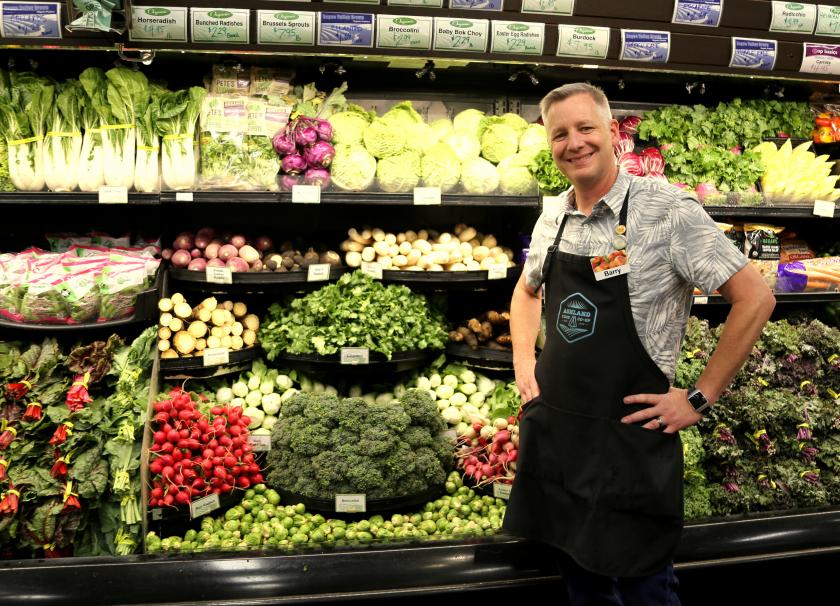
The Co-op is Certified Organic! What does that mean?
By Barry Haynes, Store Manager
Did you know that the Ashland Food Co-op is the only Certified Organic Retailer in southern Oregon. Well, that’s great! But what does that actually mean?
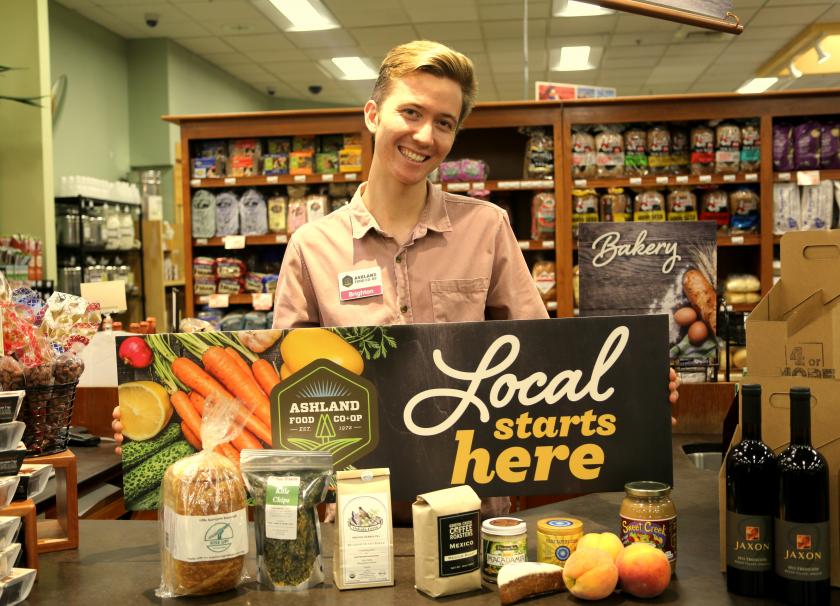
Love Local with the Local Guy
Throughout September, we will be celebrating all things local. And no one loves local or is more local than our Temporary Demo Coordinator, Brighton Litjens. He was basically raised at the Co-op, has a strong passion for local farmers and producers and loves delighting shoppers with delicious samples and great deals. Who better to tell us about loving local than the "Local Guy" himself?
Tell us a bit about yourself.

Owner Benefits: Independence and Connection
By Julie O'Dwyer, Board Secretary, Chair of the Owner Engagement Committee

Meet Board of Director Trine Ostergaard
Trine Ostergaard is a newly elected Ashland Food Co-op Board of Director. She brings a world, literally, of experience to the table and has a sincere passion and love for the Co-op. We are thrilled to have her aboard and asked her to answer a few questions.
Tell us a little bit about yourself.

Meet Board of Director Dean Williamson
Dean Williamson is a newly elected Ashland Food Co-op Board of Director. He brings to the table a plethora of co-op experience and a love of chocolate chip cookies. We are thrilled to have him aboard and asked him to answer a few questions.
Tell us a little bit about yourself.
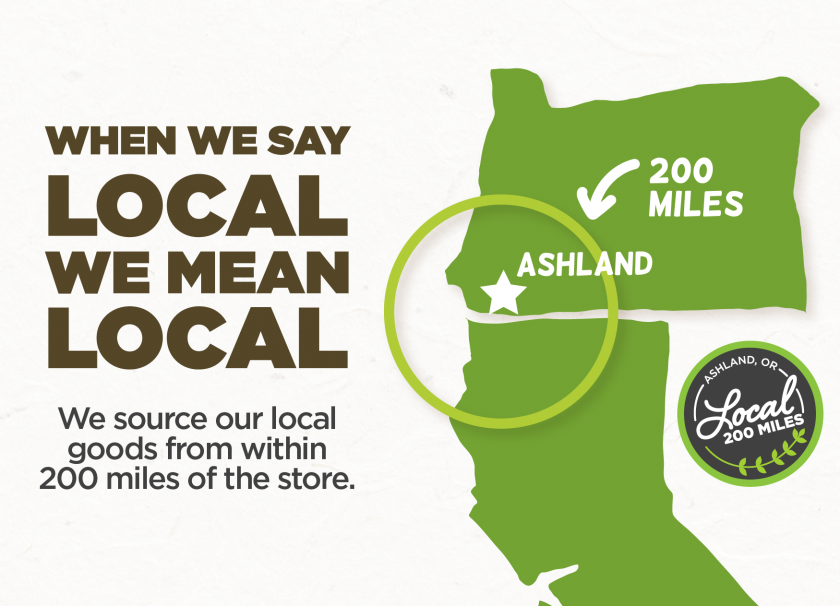
Staff Picks: Favorite Local Products
September is Love Local Month! All month long we’re celebrating our local farmers and vendors with demos, events and more. Here are some of our staff's favorite local products.
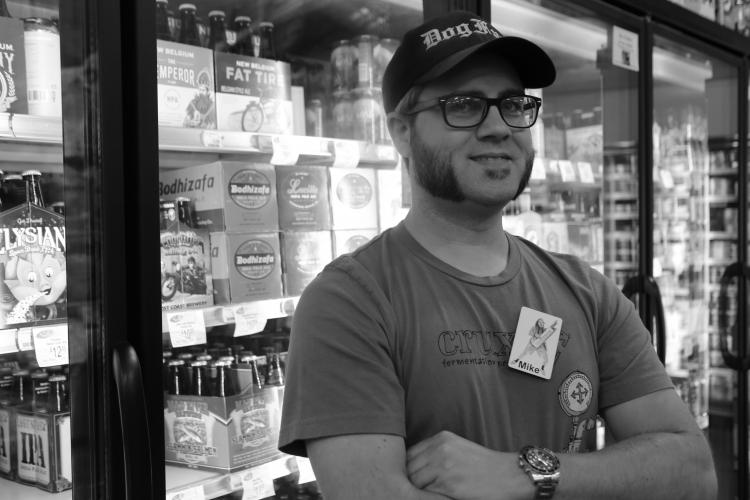
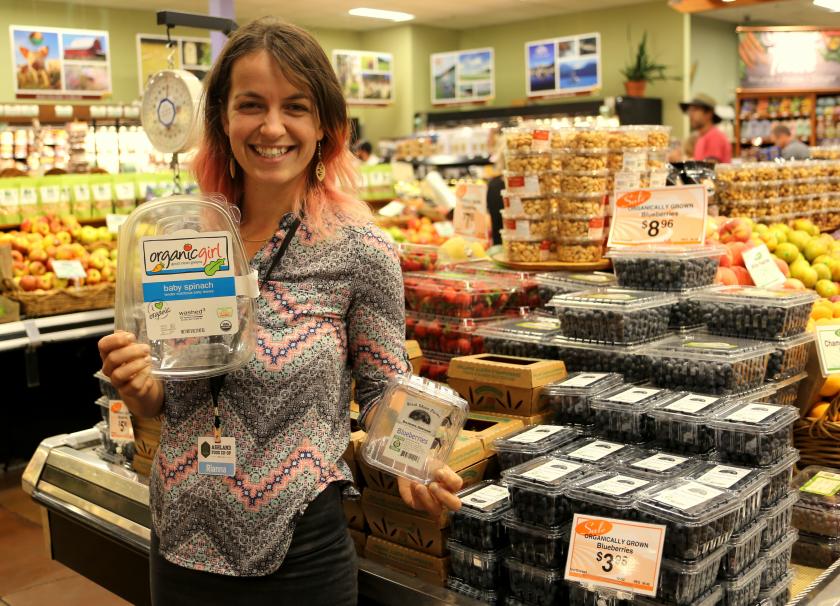
How Can I Reduce My Plastic Use at the Co-op?
By Rianna Koppel, Sustainability Coordinator
Plastic pollution today is a global dilemma. Did you know that more than 40% of plastic is used once, then tossed? In 2015, 79% of total plastic waste ended up in landfills or the environment. How can our co-op help reduce the amount of single-use plastics? Luckily, we offer a variety of options for owners.
Stainless Steel Straws
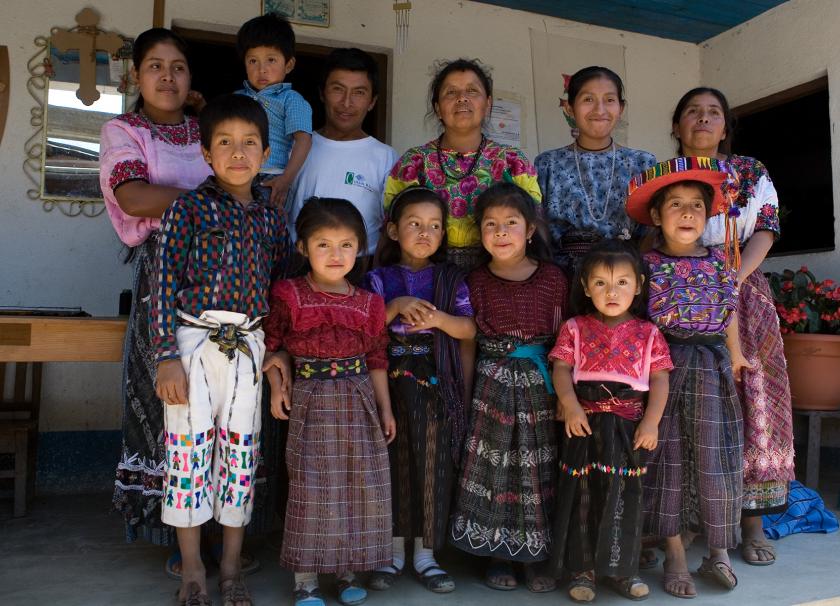
Meet Pachamama Coffee Cooperative
By Lauren Taber, Pachamama Coffee Cooperative
Pachamama Coffee Cooperative started in 2001 with a few simple questions in mind: what would it look like to take Fair Trade a step further? How can coffee farmers be in direct relationship with end consumers in the United States?
We found that the answer was even simpler: cooperative ownership. Pachamama Coffee has been 100% farmer-owned since day one, and is currently owned by 140,000 small scale family farmers across the coffee producing regions of the world.
